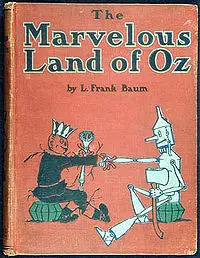There comes a time when the worst thing imaginable happens to a rare book collector and a book is lost for all time. Their house burns, floods, or the dog eats it, or maybe even an old college friend down on her luck pockets the venerated possession and runs. Yes, the worst-case scenario can happen to collectors no matter how careful they are.
 Obviously if your collection is substantial – meaning in the millions of dollars – you’d be wise to consider specialist insurance brokers. But, this does not apply to most of us. We can feel better about the safety of our books/manuscripts by simply following some good common sense.
Obviously if your collection is substantial – meaning in the millions of dollars – you’d be wise to consider specialist insurance brokers. But, this does not apply to most of us. We can feel better about the safety of our books/manuscripts by simply following some good common sense.
I personally kept my best manuscripts in my walk-in closet, secured and preserved, where only I could reach them. I was foolish and the attention I gave my books proved to be my undoing, in a manner of speaking. The archive quality boxes and the secured location next to my jewelry designated each text as valuable for a would-be thief, and yes, some people, even those successful in higher education, would be. Woe to me! And a pox on all book thieves!
Thief Evasion Tips
- Store your books inside nondescript containers
- Keep your collection in multiple areas of your home
Among the books I lost was a first edition publication of the Land of Oz, a book I’d kept since childhood. One I scribbled my own name in with crayon when the edition had already been out of print eighty years. I was five and proud to be a reader like my older sister and I wanted her to be sure who owned that book. ME.
This one rare book, though I didn’t understand at the time, inspired my interest in literary artifacts. The art nouveau illustrations fueled my imagination for years.
Surrounded by ranches on the high Oregon desert and nothing to do but read, I read and reread that book and I loved it.
The mystery behind the exorbitant prices of some rare books is that they were loved or popular. The demand for each specific publication depends on that most human element. Insurance however, is motivated by complete distrust and a touch of misanthropy.
Fortunately, luckily I had been robbed before and was properly insured when “the worst” happened again, but I was this time overconfident about the precautions I had taken. I assumed, wrongly, that I once I called the bank with whom I held an insurance contract, I would be able to walk down to Powell’s purchased another copy of the Land of Oz, grab a crayon, and defile that edition as I had the copy from my childhood. I was wrong. My policy did not specify particular items in my collection and I had not taken photos nor had my book appraised. Why? I had done so myself… wasn’t that enough?
The courteous insurance representatives over estimated other items stolen from my home-after I’d submitted a copy of the police report-and not surprisingly they did not appreciate the true value of the Land of Oz as a rare book. I even attempted to explain it over the phone, but in the end I received $73.49 in compensation for a book from a later publisher and entirely different artifact.
It was the equivalent of offering a Volkswagen Rabbit in exchange for a Ford Model A. The former owner of a Model A does not want the Rabbit; they want the Model A.
It hardly matters if the vehicles perform comparably. The point of owning the car has been missed if the insurer finds them to be equal to other.
So, to avoid being wrongly compensated if the worst happens:
- Keep receipts (if any)
- Have books appraised
- Keep a photo record of your collection online
- Purchase insurance collection-specific insurance
Short of tracking the thief down and taking the law into your own hands, these are the best options.
The Image comes from the WizardofBaum website
